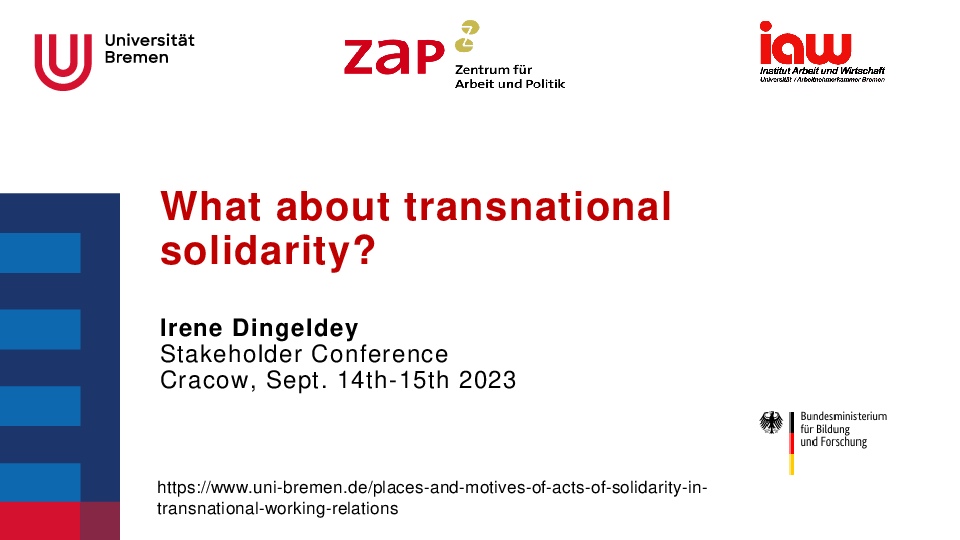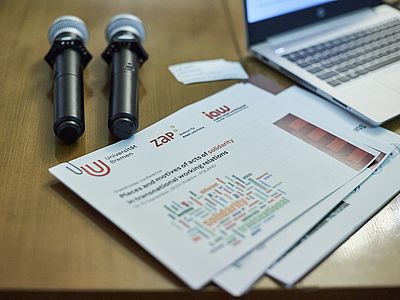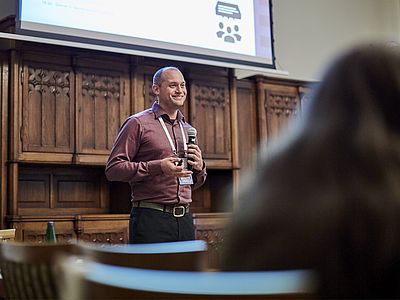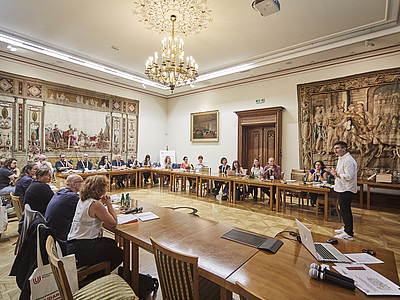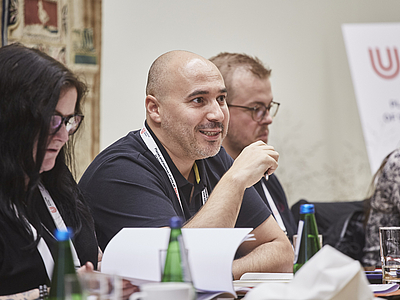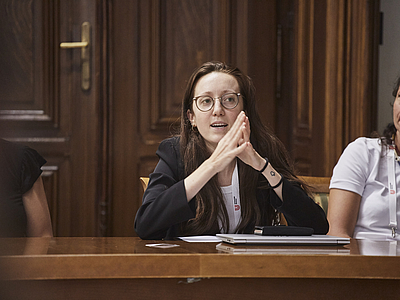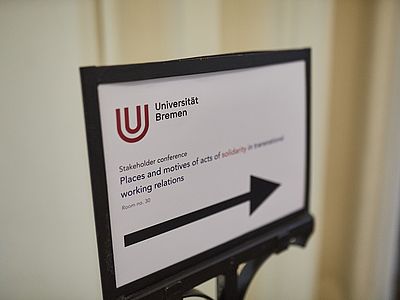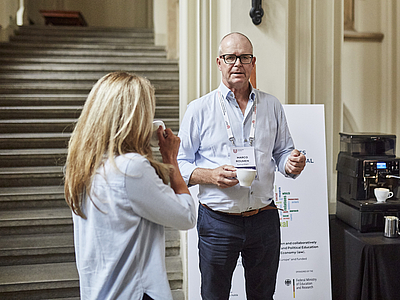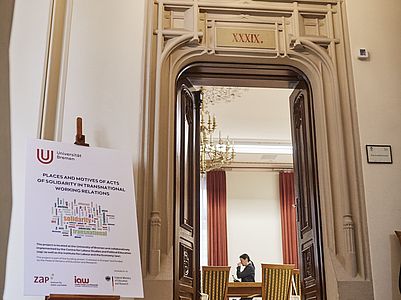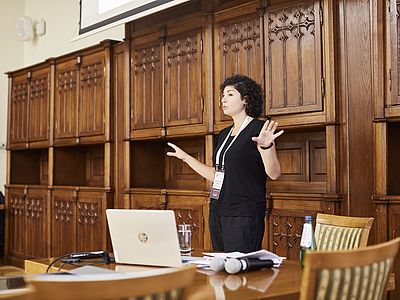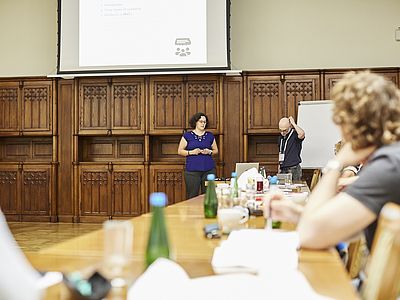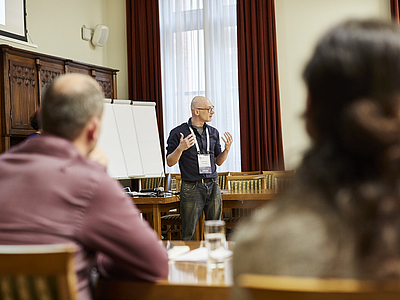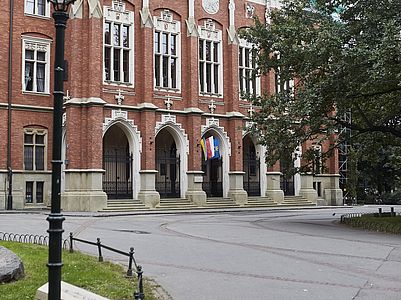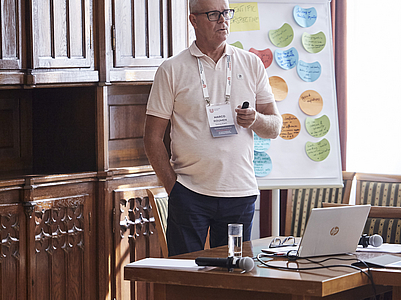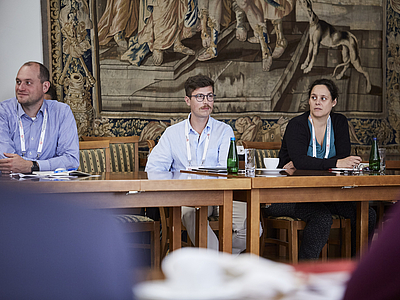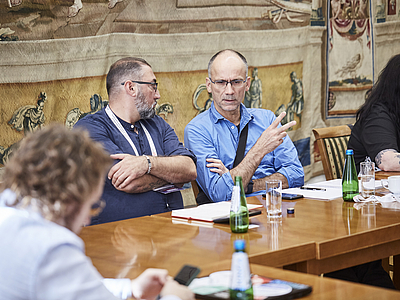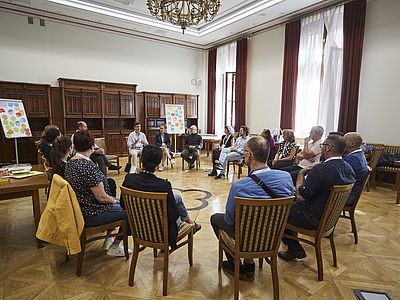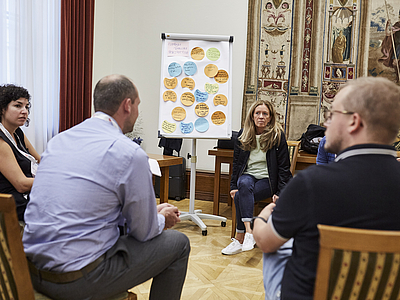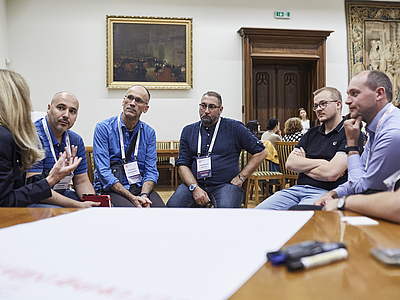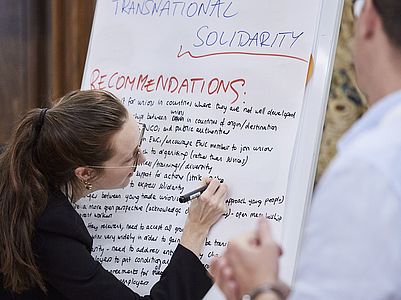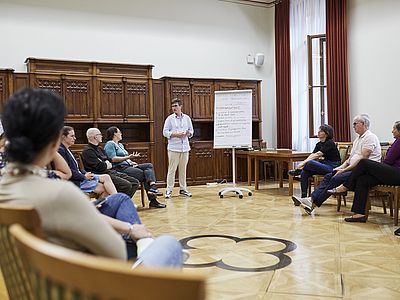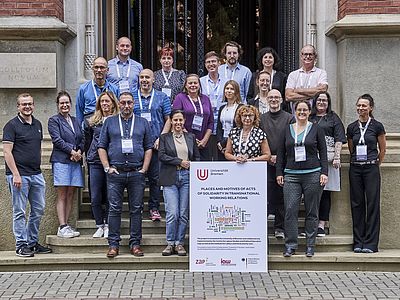Working [with] solidarity – our stakeholder conference in Kraków
In September 2023, we have held our stakeholder conference on “Working [with] solidarity” in Kraków, Poland. Stakeholders from different backgrounds participated and contributed with their expertise to fruitful discussions. They represented European Works Councils, European Trade Union Federations and national advisory centres for mobile workers. Altogether, they have collaborated with us throughout the project by sharing their experiences and knowledge about acts of transnational solidarity within their respective field. And they came to Kraków to finally discuss the topic “Working [with] solidarity” face to face.
On day one, we started with presentations of our research project. This entailed our theoretical understanding of acts of solidarity in transnational working relations as well as results from our two subprojects. We presented how transnational solidarity with mobile workers is possible and what different trade unions have already implemented approaches of transnational solidarity. Moreover, we provided insights into the work of European Works Councils in multinational companies and how they make acts of transnational solidarity possible. We closed this day with a long discussion and common group reflection with regard to our results and their practical relevance. Already at that stage, we learned a lot about the stakeholders’ everyday work, working conditions and functioning approaches to act in solidarity within the different fields of working relations.
On day two, we had two insightful and impressive presentations of stakeholders on their practical approaches of solidarity in transnational working relations. Oskar Brabanski (DGB) presented the advisory centre “Faire Mobilität” which supports mobile workers in the enforcement of their working conditions and fair wages. Not only is the target group transnational, they have also established structures throughout different European countries in order to give advice in the sending countries already. Furthermore, Marco Roumen, Secretary of the European Works Council and coordinator of the Solvay Global Forum, presented the structures of workers participation in the multinational company Solvay. This impressive example of strongly developed workers participation is based on institutional structures such as the EWC and the Solvay Global Forum but also on a number of agreements covering a variety of topics. These comprise for instance the Solvay Cares Agreement, the Global Performance Sharing Agreement or the Global Framework Agreement on Digital Transformation. Both presentations offered a lot of insights to all of us and fostered lively discussions. We closed the stakeholder conference with a workshop session in which we discussed recommendations in terms of what we do need for transnational solidarity and which conditions will have to be changed to foster acts of transnational solidarity. Altogether, it was an inspiring conference with a lot of interesting insights which leaves us optimistic with regard to future examples of transnational solidarity.
A special “thank you” goes to our project partners from Wszechnica Uniwersytetu Jagiellońskiego who organized everything on the ground and provided a very professional, welcoming and constructive atmosphere. We are all looking forward to coming back to beautiful Kraków!

